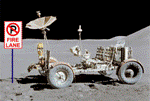Law, College of

Space Law Documents
Document Type
Article
Date of this Version
1985
Abstract
The existing arms control regime for outer space bans attacks on satellites of other countries, except as acts of self-defense. The moon and other celestial bodies cannot be used for military activities. Detonating nuclear explosives in outer space is prohibited. Deployment in space of nuclear weapons or other weapons of mass destruction is prohibited. Development, testing, or deployment of space-based anti-ballistic systems or their components by the United States or the Soviet Union is prohibited.
Proposals that outer space be demilitarized or that anti-satellite weapons be banned create complex problems. Since all space activities have potential military uses, great care would have to be taken in defining precisely what a proposal to demilitarize space is meant to prohibit. Similarly, many space objects have the capability to be used to damage or destroy space objects. Any reasonable definition of anti-satellite weapon will leave uncontrolled some non-weapon systems that have a residual anti-satellite capability. Daunting problems of verification and the disparity between the current relevant space capabilities of the United States and the Soviet Union add further complexity.
While it is unreasonable to conclude that demilitarization of space or a ban on ASAT weaponry are panaceas, it is also unreasonable to conclude that nothing useful can be done in space arms control.


Comments
Published in: Proceedings of the Twenty-Seventh Colloquium on the Law of Outer Space, International Institute of Space Law of the International Astronautical Federation, Lausanne, Switzerland, October 7–13, 1984 Published by American Institute of Aeronautics and Astronautics New York, 1985.